Alumni Showcase
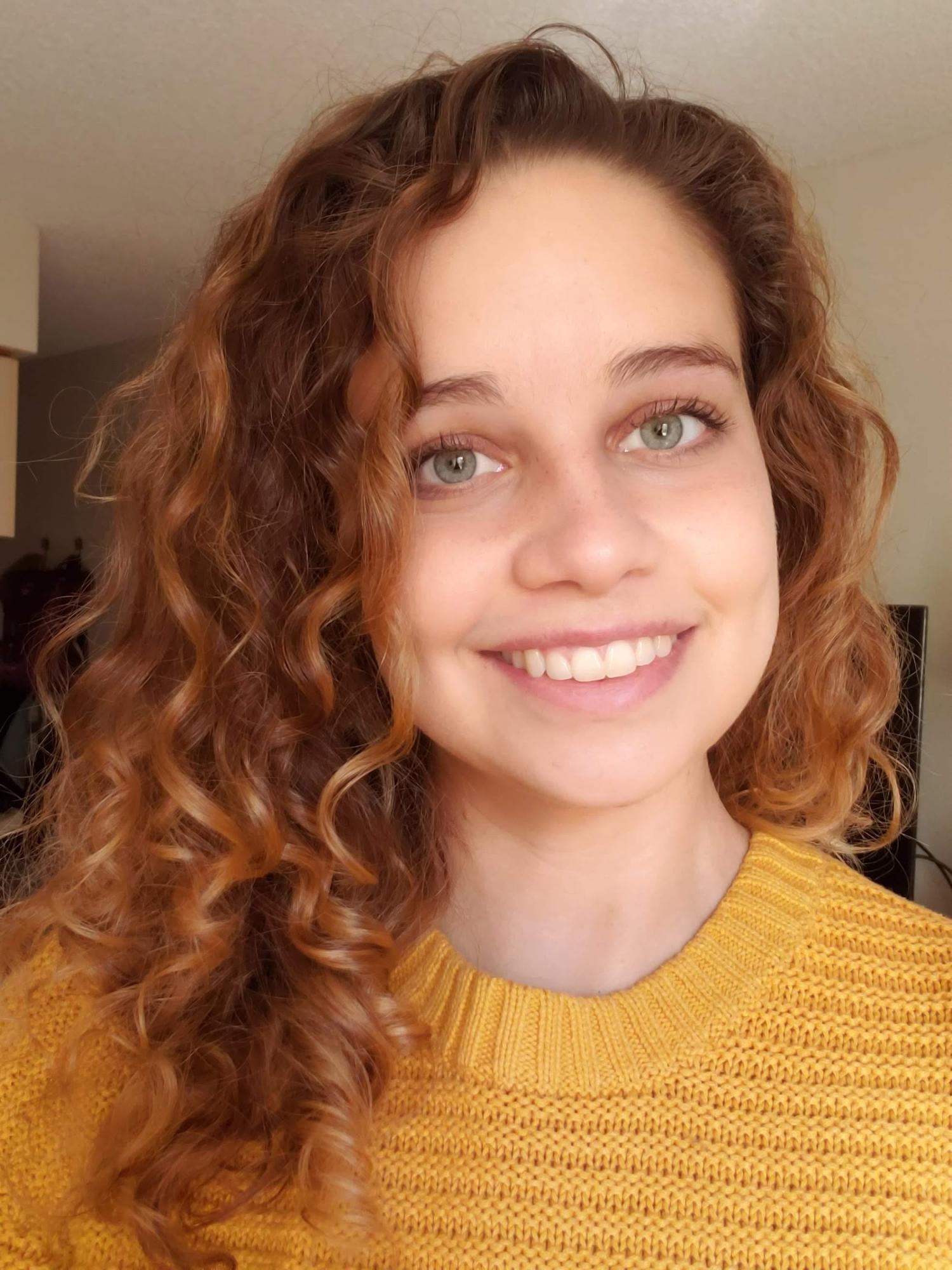
Astronomy major (Astrophysics option)- Graduated 2015
Associate Scientist
Cooperative Institute for Research in Environmental Sciences (CIRES)
Boulder, CO
Describe your career path since graduating
Initially, I wanted to take a break from school and gain some real world experience before continuing on to pursue a PhD. Right after graduating, I moved to Baltimore, MD to work at the Space Telescope Science Institute (STScI). My first job was on the Space Telescope Imaging Spectrograph (STIS) on the Hubble Space Telescope. My work focused mainly on the CCD, calibrating data, producing dark and bias frames, building, testing, and maintaining various pipelines, answering help calls from the astronomy community, writing documentation, presenting my projects at conferences, and contributing to a wide variety of science projects. Bonus: I went to Johnson Space Center in Houston to assist with testing the James Webb Space Telescope (JWST), which was a pretty cool project and a departure from my normal tasks (this was also during Hurricane Harvey and we ended up having a sleepover at NASA JSC!). I ended up really enjoying the diversity in my projects at work and decided to continue working, gaining experience that way, rather than pursuing a PhD.
After a while, I decided that I wanted something new and something that I felt had an impact on people. My new job search started at the beginning of 2020 (perfect timing, right?). Eventually, I found an exciting job back in Boulder at CIRES, and moved back in the middle of January. Currently, my job is on the Space Weather team, working with instruments on the GOES (Geostationary Operational Environmental Satellites).
How did your time in APS prepare you for your current career (or life) - if at all?
Obviously, I have stayed in the astronomy field, so the foundation for everything I know and use now in my career is from my time in the APS department. In fact, at the end of my interview with STScI all those years ago, the hiring manager commented that they had interviewed and hired quite a few CU Boulder APS students and that the APS department prepares students very well for jobs like that! Because a good portion of my job is instrumentation and coding, the programming and observations classes were extremely helpful for me. The research opportunities I had with various professors were also incredibly invaluable!
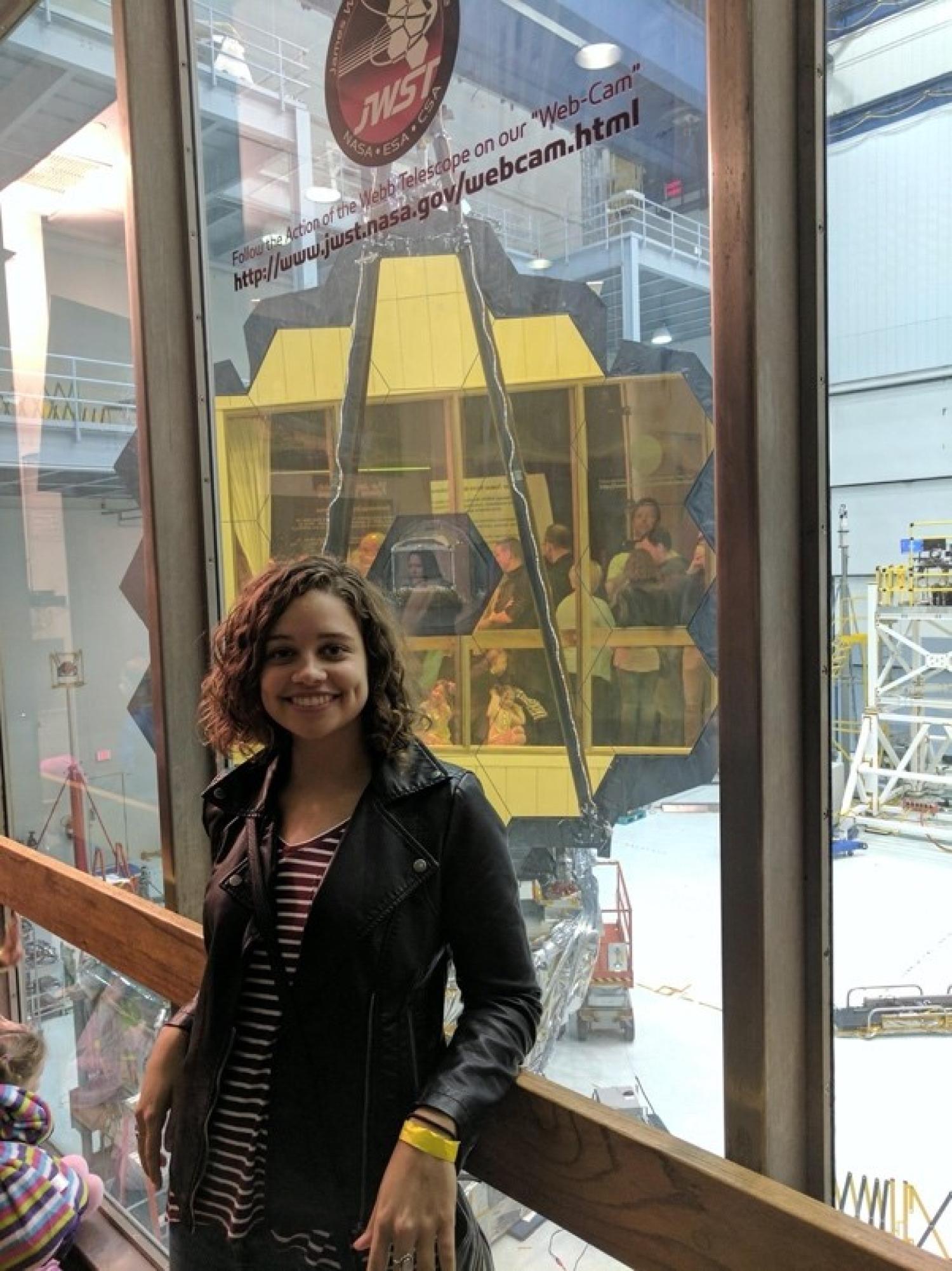
Okay, I have a few pieces of advice
- Don’t be afraid to talk to your professors. They are a huge resource for finding research opportunities, helping out if you’re having trouble understanding something from class, and giving career and life advice. I still remember Dr. Darling, in addition to advising my honors thesis, telling me to negotiate my salary and giving me advice about retirement plans!
- A PhD is NOT your only option. Going through school, My impression was that the only path forward for someone with an astronomy/astrophysics degree was to get a PhD. During my senior year at CU, I felt so burnt out and felt like I let myself and my professors down because I didn’t want to go to graduate school right away. The job search felt daunting because I didn’t think I’d be able to get a good job with just a bachelor’s degree. After getting my first job out of college (and now my current one), I know that there are lots of interesting and exciting careers for people without a PhD in astronomy/astrophysics. And, even if you do end up wanting to get your doctorate, it’s okay to take some time off from school if you need to.
What was your most memorable moment as an astronomy major?
I think my most memorable moment as an astronomy major was when I went to the Apache Point Observatory with my Observations and Instrumentation class. I just remember walking outside at night and it was perfectly clear and completely dark. The sheer amount of stars was overwhelming. Constellations that I knew like the back of my hand had just disappeared in between all the other stars I’d never seen before.
Any other comments?
I’m always happy to talk about school, career, etc with anyone who is interested. Please don’t hesitate to reach out!

Maya Yanez
Astronomy- Graduated 2019
Ph.D. student in Geobiology at USC
Describe your career path since graduating
I want to talk about my senior year briefly first. My mental health had tanked quite a bit, and I felt burnt out. I went from having a list of 12 grad schools to apply, to 4. I decided I was much happier taking a gap year, but that I had done a lot of work to be prepared to apply that cycle. So I did. A series of rejections followed. I reached out to the last prospective advisor and they basically told me no. So I got hired in a microbiology lab on campus with plans to work at least a year while I reapplied in the next cycle.
Within two weeks, that last advisor reached out to me with an offer. But not just any offer, an offer to do my PhD with him at USC and with my previous mentor at NASA JPL. I decided that this was a rare opportunity: not only could I go to graduate school, but I would get to do it with my previous mentor as my co-advisor AND design my own independent project for my thesis. My research focuses on the habitability of Saturn's moon Titan for acetylenotrophs (microorganisms that eat acetylene). I am approaching it from the lenses of three different fields: 1) Culturing microbes in Titan analogue conditions 2) Modeling of predicated organism growth and reaction energetics of the environment and 3) Determining likely locations on Titan's surface where evidence of life may be found by Dragonfly. Graduate school is hard, but I LOVE my project. It's even sweeter that it's my idea.
While I am pursuing research and graduate school, it is imperative to maintain commitments to my community. I was recently selected across all departments to receive the 2021 USC Provost's Outstanding Teaching Assistant Award based on my teaching performance across three semesters. I was elected to be the first ever AAS Division of Planetary Sciences Student Representative to advocate for students within DPS. I am also the chair of the Department Culture & Climate committee to improve our climate and to retain underrepresented students.
How did your time in APS prepare you for your current career (or life) - if at all?
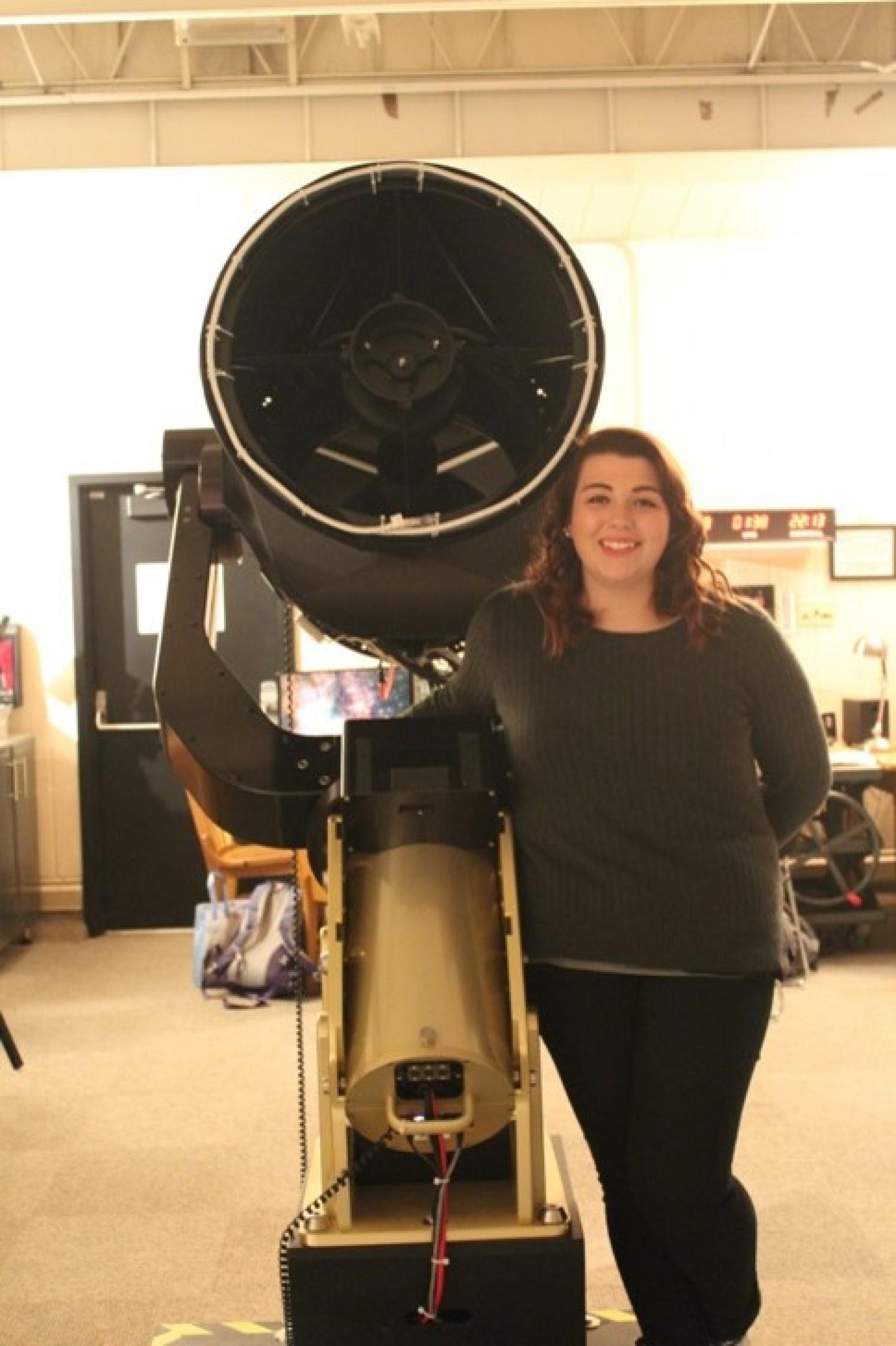
APS will always hold a special place in my heart. I struggled to pass Introductory Physics at CU; third time is the charm. Despite struggling that much, I had been able to take the 1030/1040 sequence, and asked Dave Brain to be my faculty mentor. He helped me understand what I needed to do to be qualified to go to graduate school (the whole General Astronomy vs. Astrophysics debate!). It was a difficult decision: not be prepared for grad school and graduate early, or be prepared for grad school, graduate late, and have more debt. I eventually made the decision to do General Astronomy but to keep taking classes that interested me on the Astrophysics track.
My Teaching Assistant from 1030, (now Dr.) Bryan Holler, offered a research opportunity to our class. I took him up on it. This project eventually became my honors thesis that I successfully defended. Bryan giving me that opportunity was life-changing. It helped kickstart a series of events that led me to two consecutive NASA JPL internships. So APS gave me the boost to launch my career.
Because of Bryan, I got to utilize Apache Point Observatory! Honestly, that is one of the most amazing benefits of being a student in APS. You get FREE observing time on an amazing suite of telescopes. You gain practice in writing proposals, preparing ephemerides and other observing materials, and you get to slew a 3.5m telescope, sometimes onsite at APO. An amazing experience!
The upper division planetary science courses (not 3710, but 3720/3750) were SO HELPFUL. We covered such a wide breadth of knowledge about surfaces and atmospheres that I feel skilled enough to at least approach any question I'm curious about. It may not be the most accurate, but I can certainly perform a Back of the Envelope calculation for most questions! Also, the Astronomy Help Room is such a unique resource in our department. I find that it is rather uncommon to have a team of TAs/graduate students that help with math, physics, and astronomy as their office hours. Use it!
Talking with graduate students were some of the most rewarding, helpful, and inspiring interactions for me and my career. I was lucky enough to work in the front office of the APS department for three out of my five years at CU. This meant I had facetime with nearly all the faculty and graduate students, and it demystified the intimidating university structure. That professional experience shaped how I approach initiatives within a university and helped me secure funding for URSA which I founded before graduating. Also in general, having to work 25-30 hours a week as an undergrad prepared me for the time management of grad school. I was also an LA and a grader which prepared me for being a TA, especially because you don't often receive TA training in grad school.
In general, the people I had supporting me in APS were what prepared me most. The APS curriculum is challenging; not everyone chooses to continue it for a reason. But with my friends, mentors, APS staff (Hi Jose and Troy!), and graduate students, I felt supported and empowered to continue. They truly helped me believe in myself.
What advice would you give to current APS undergraduate majors?
Talk to everyone! Seriously, I got some of my most impactful opportunities by simply talking to others (and being patient enough....I once waited 90 minutes to talk to a NASA mission project scientist at a conference. He ended up funding my second summer internship at JPL). If you have a question, ask it; if you have an opinion, respectfully share it; if you need help, talk to others! Find a study group. I hated being told that as an undergrad because it felt so awkward. So I'll say it differently: Find someone in your class who you get along with and are willing to spend a myriad of stressful hours with, then plan to do the homeworks together. It's much better if you and that person can make each other laugh. Also if you see one of your peers really succeeding, don't be afraid to talk to them! Most of our majors were very kind and always willing to help each other out or explain how they approached a homework problem.
Talk to the graduate students! APS graduate students are some of the hardest working and smartest people I have ever met. Everyone from 1st to 7th years has some advice or tips to offer. Ask your TAs about their research. Ask them for help and advice, especially as you get closer to applying for graduate school.
Take it slow. I took five years to graduate. It was worth it! My last two years were balanced with half upper division physics and astro, and half fun classes. I had time to do research and many other extracurriculars without feeling drained. Consider taking a gap year between undergrad and grad school; MANY do and it often helps them prepare for entering graduate school. As an example, I am the only one in my lab that came straight from undergrad.
Attend conferences! Especially with so many virtual conferences recently, and the prospect of more in the future, consider attending professional society meetings even if you don't have results to present. Learning about how science is conducted at other institutions may motivate you to take classes in other departments, and perhaps you'll find the research you want to pursue along the way!
Take care of yourself. Everyone I knew in APS had bad days. Many of us had poor mental health at some point or another. It's important to take time when that happens, that is just about taking care of you. I am saying this as someone who constantly had to be reminded to do so.
What was your most memorable moment as an astronomy major?
I am breaking the rules and I'll give you a couple. The APS department changed my life and gave me a lot of first time experiences.
The first time I watched us fly through space in Fiske, and I cried.
Seeing the Galilean Satellites around Jupiter for the first time through Artemis, during the semester we got Artemis and Apollo at SBO.
Seeing the Milky Way in the sky for the first time while I was at APO learning how to make observations of Pluto.
Giving a mobile planetarium show in Spanish on a CU STARs trip.
Being an LA, and my TA not showing up for the lab so I had to run it by myself. And succeeding!
Speaking at graduation and pleading with faculty to give everyone a second chance because they can still succeed after failure.
Any other comments?
No place or institution is perfect. But I am honestly forever thankful for my time in the APS Department. It shaped me and my approach to science forever. The people are some of the most impactful mentors and I am stoked to get to continue those relationships.
If you're into Planetary Science and Astrobiology and have questions, I am happy to chat with you! You can email me, or check out my website (planetarymaya.wordpress.com) or Twitter (@PlanetaryMaya)!
Kelsi Singer
Astronomy & Anthropology major
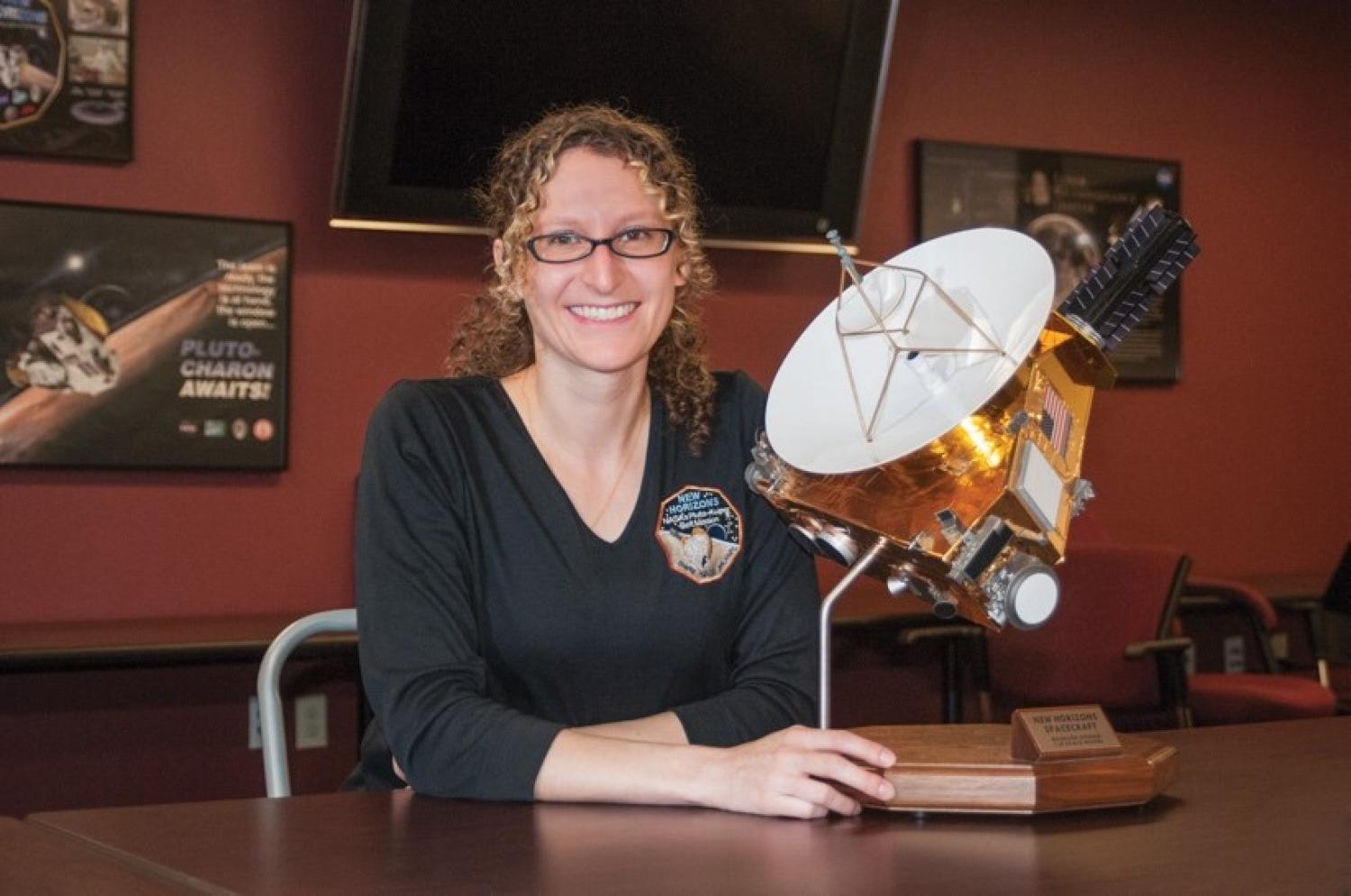
Graduated 2006
Senior Research Scientist at Southwest Research Institute
Boulder, CO
[Editor’s note: Kelsi Singer is a Deputy Project Scientist and Co-I on NASA’s New Horizons mission to Pluto and the Kuiper Belt. In 2019 she won the American Astronomical Society / Division for Planetary Sciences Urey Prize for Early Career Scientific Achievement – an international award for “best young planetary scientist”.]
Describe your career path since graduating
I went to graduate school at Washington University in St. Louis in their Earth and Planetary Sciences department. I always see planetary science as half-way between astronomy and geology, and I wanted to get some training in the more geological side. I studied the icy moons of Jupiter, Saturn, and Neptune for my PhD. I then did a post-doc with the Lunar Reconnaissance Orbiter Camera, which led me to a lot of research interest on the Moon. I had the opportunity to join the New Horizons mission 1 year before its arrival at Pluto in 2015 (I joined in 2014). There I got to see some of the first pictures sent back from Pluto and have been conducting a number of different studies, ranging from impact physics to icy volcanism ever since!
How did your time in APS prepare you for your current career (or life) - if at all?
Because I remained in the field of planetary science, the background knowledge and training I received at CU has certainly been useful. It’s been a little while, but I would say the most useful aspects were general problem solving, gaining background knowledge in planetary science, learning how to do telescopic observations, and coding (I think I took one of the first IDL classes offered, and although I don't use IDL much anymore, learning any programming is a good thing :).
What advice would you give to current APS undergraduate majors?
Astronomy and planetary science are very interdisciplinary and creative fields. That means it takes a lot of hard work to develop expertise, but it also means that people with different strengths all have something to bring to the table. This includes writing, communicating, art and visualization, coding, statistics, etc.
What was your most memorable moment as an astronomy major?
We took a field trip to the Very Large Array and that was a pretty neat place visit.
Laura Cummings
Astronomy major- Graduated Dec, 2017
3rd (final) year law student - Georgetown University Law Center
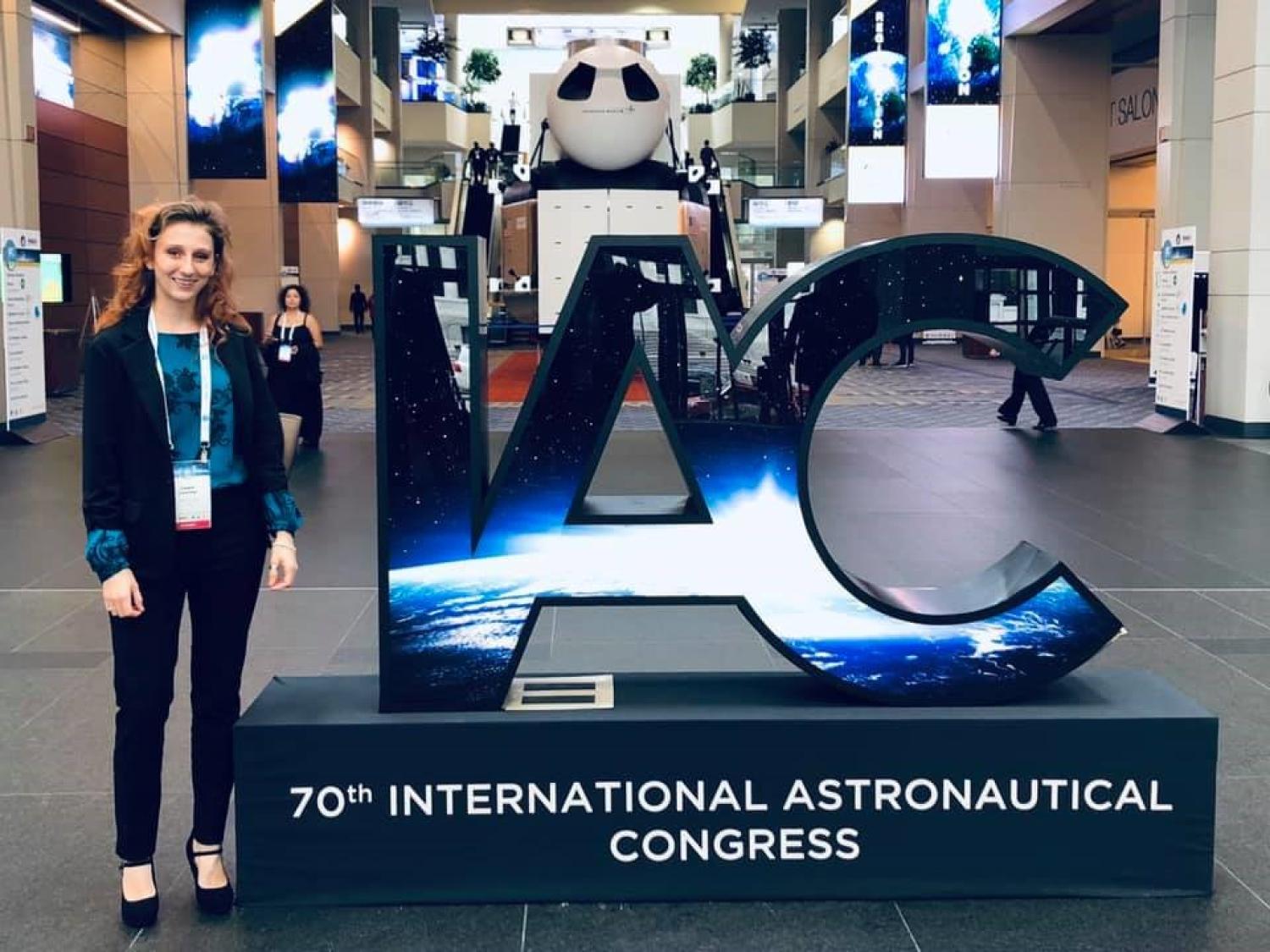
President of Space Law Society
Research assistant for upcoming space law textbook
What was your most memorable moment as an astronomy major?
During my second semester of general astronomy, at one point, Professor Toomre attempted to get up on a spinnable stool, while holding a spinning bike wheel, to demonstrate conservation of angular momentum and how satellites are moved with wheels. Our TA promptly stopped him out of due regard for Professor Toomre’s health and wellbeing, at which point Professor Toomre forced our TA to undergo the stool exercise.
Describe your career path since graduating
The summer after graduation (Summer 2018) I took an internship in Washington, D.C. with the Space Studies Board of the National Academies. In the Fall of 2018, I started in the law program at the University of Denver Sturm College of Law. While at DU, on top of first-year coursework, I founded and led the first DU Space Law Society. We attended many events to network the society and ended up securing a sponsorship from Lockheed Martin for a society event.
During the summer of 2019, I interned in the Regulatory division of the Federal Aviation Administration, focusing on their upcoming launch and reentry regulations. At Georgetown, I acted as Vice President of the Space Law Society last year (2019-2020), and currently act as President for this academic year (2020-2021). From January to August of 2020, I was employed as a regulatory intern for SES (a Luxembourg-based satellite internet company).
How did your time in APS prepare you for your current career (or life) - if at all?
APS gave me the technical skills that I need to succeed in my career. Specifically, while interning with SES, I would not have been as effective an advocate and regulatory intern if I didn’t understand frequencies, satellite orbits, and how things move in space. My time at APS gave me the ability to have science-based conversations and understand basic engineering concepts, which I could then easily transpose to fit the legal conversations within the company.
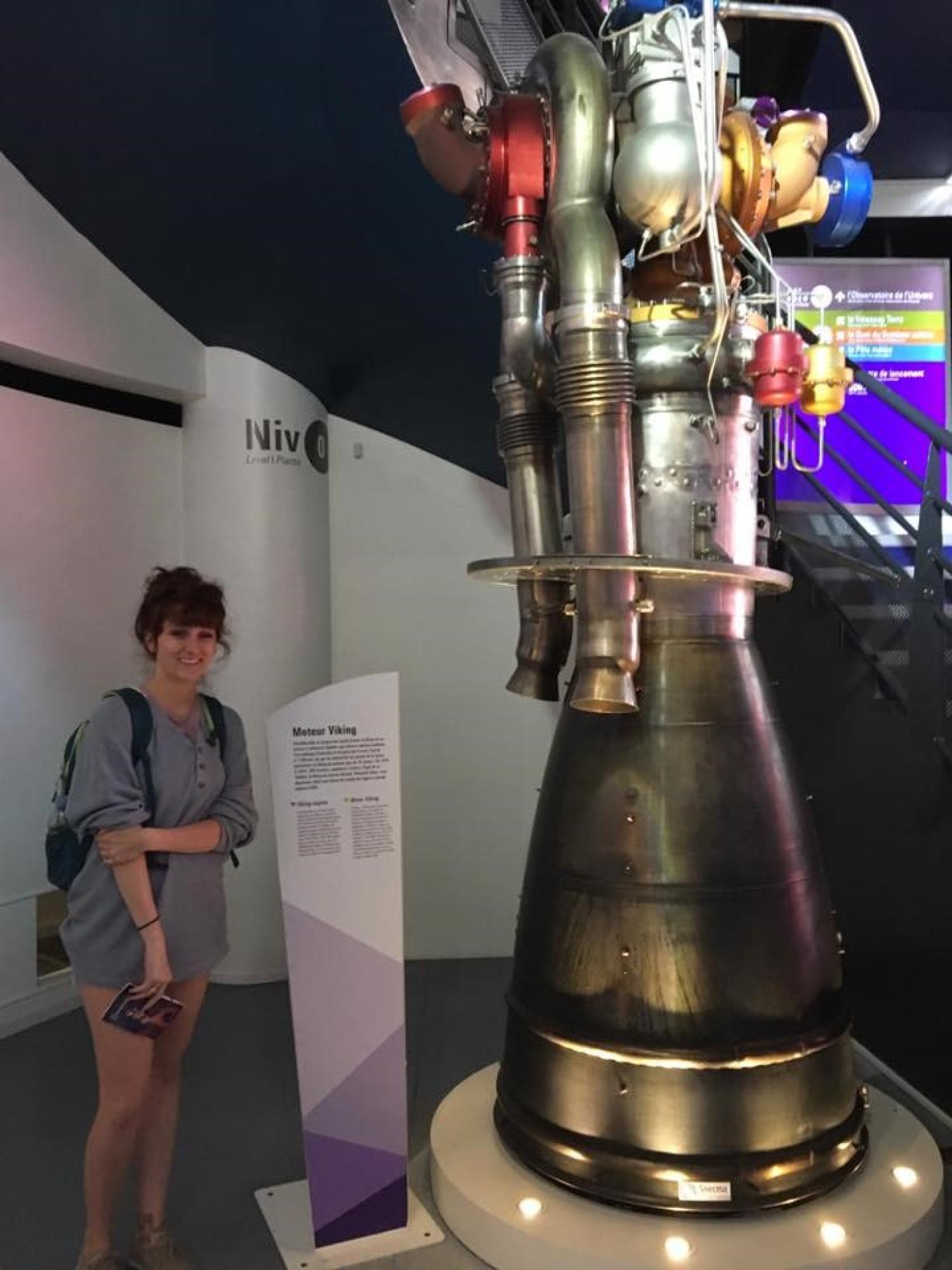
Your career path is not limited – the degree you receive from APS will be the precursor to many great things. The third era in space, commercial space, is here, and there is room for any and all interests.
Also, network until you die. I’m an introvert so I know it sucks – just pretend you’re someone else (who’s confident) and you’ll get through it. Get a networking buddy to go to events with you. Don’t be afraid to connect with alumni at the company or organization you want to work with, they can be one of the greatest in-roads to positions. Start now and keep an updated LinkedIn.
Any other comments?
The APS program at CU is what gave a giant university a small feel. I concurrently completed a BA in International Affairs, and I can positively say the APS Department is the one that made CU feel like a place of welcoming, where I could make a path for myself with support from faculty. Learning astronomy was really a cover for learning many life lessons and how to approach problem solving throughout my daily life (back of the envelope questions will help you in ANY situation). I continue to cherish the time and experiences that I spent as a student in the APS Department.
Kristina Salgado- Denver, CO
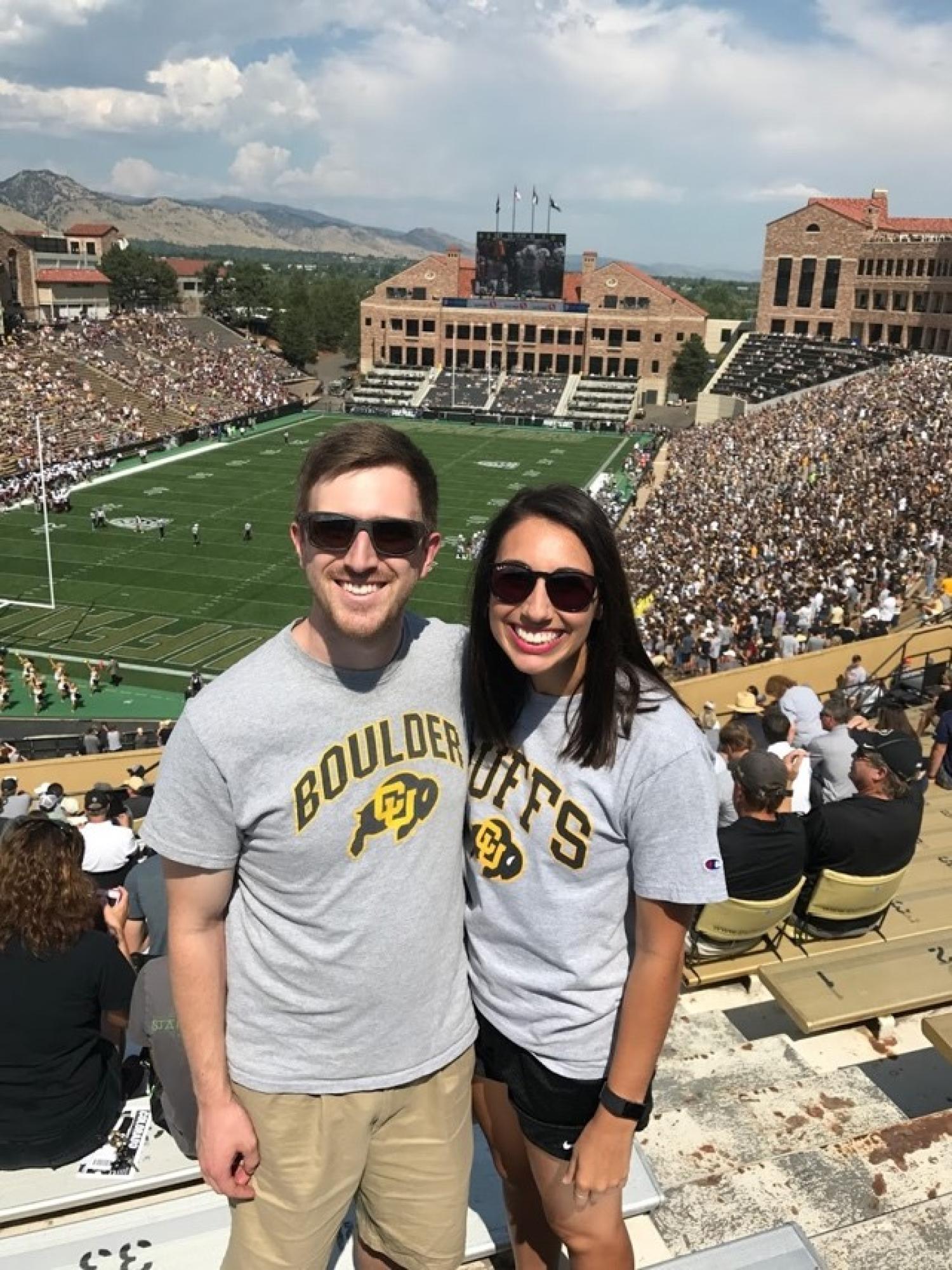
Astronomy major (Astrophysics option) - Graduated May, 2015
Software Quality Assurance Engineer at PaySimple
What was your most memorable moment as an astronomy major?
I’ve been trying to think of the single most memorable moment for days now and am really struggling! There are so, so many small moments that come to mind but I think one of the most defining moments as an astronomy major was the day of my thesis defense – April 2, 2015. I wouldn’t say that normally I am a nervous speaker, having given presentations to a crowd of 500 parents at new student orientation, but for whatever reason, this 1 hour talk in front of 4 people felt like a huge weight on my shoulders, like I wouldn’t be able to graduate if I couldn’t get through this thing! I can’t say that I knocked it out of the park, delivering with a very shaky voice and relying on the patience of my defense committee to get me through, but once I completed it, the feeling was unimaginable. I was so proud of myself for completing all the work I had put in, for having my astro learning culminate into such an interesting project, and for being able to look back at my 4 years at CU and say, “hey! I did that!”. It made all the nights of hair-pulling, brain-wracking, phone calls to my parents, among so many other struggles, worth it! It was an incredibly satisfying conclusion and validating moment for any times I had doubt that I needed to be somewhere other than an astronomy major.
Describe your career path since graduating
My plan truly was to go to graduate school for astro when I came in as a freshman at CU; however, by the time I got to my junior year to start thinking about programs I realized that I didn’t have the credentials to be competitive enough in the admissions process at the time. Being a good student doesn’t discount that there are a lot of smart people out there! While much of the landscape has evolved since I graduated, there were a few factors which contributed to my decision not to apply: (1) I didn’t have enough research experience, (2) I didn’t have a stand-out GPA, and (3) I was vastly unprepared and too burnt out to study for the Physics GRE, which many programs at the time required.
At CU, I was a part of the CU STARs program, which I had really enjoyed because of the community outreach. So after graduation, I made a quick pivot to the teaching world, where I joined the Denver Math Fellows program with a fellow CU grad. We worked in Denver Public Schools with small groups of kids grades 3-12 who were considered “behind” in grade-level math to help them get up to speed. This was one of the most challenging, but rewarding things I had ever done, and it gave me a much broader look at systemic issues in our education system. That being said, I knew after that year that working with kids wasn’t for me in the long run.
Needing just a paycheck and some doors to open career-wise, I started working at a tech company in Denver as a part of their customer service team, where I gained invaluable skills in time and people management, along with experience of what it’s like to have just a regular job! Let me tell you, switching from a school schedule to a 9-5-esque schedule is quite the change! After becoming team lead, a new role on the Quality Assurance team opened up and, as I was searching for something more technical at the time, I made the transition in 2018 and have been in this role since! My day-to-day is testing software code written by developers on my team before it is released to the public. It’s my job to find issues in the software and verify that it was made to specifications before the real stakeholders (our customers) see it and interact with it. I do this with a variety of tools, but because I am typically working with our back-end development team, I frequently work with APIs instead of a user interface and test both manually and with automation scripts that I write.
How did your time in APS prepare you for your current career (or life) – if at all
My time in APS prepared me for my current career in I think the ways you would expect from most any technical field – critical thinking & problem solving. While obviously not as applicable for my current position as say, an engineering degree, I think astrophysics taught me those two things just as equally as my math major or as a chemistry degree might. Looking back, I have no regrets in studying astrophysics as an undergrad, even if it isn’t what I’m doing now and even though my end goals significantly changed from my freshman to my senior years. If anything, I wish I had taken more classes and/or electives that involved programming to make it more applicable to the kinds of jobs I was applying for in “the real world” post-graduation. However, my experience in Python from my thesis and from ASTR 3800 served as a great basis for my daily work in software now.
I would also say that my time at APS gave me a crash course in communicating technical ideas to general audiences. Becoming an astronomy help room tutor, a learning assistant for non-major astro courses, and working shows at Fiske were among the most valuable experiences I had in developing this skill. In any job I’ve had or applied for, clear communication is a stand-out ability for recruiters and then again among my coworkers and managers which has significantly contributed to my career growth.
What advice would you give to current APS undergraduate majors?
For practicality in the major, especially those on the Astrophysics track, double-major in physics and/or math. You are already taking SO many of the required courses, it’s worth it to add the couple of classes so you can major in one of those as well. If your plan is to go to grad school, they will do nothing but help you. If your plan is to go into the workforce, many of the aerospace companies I applied to were looking at my math degree, not my astrophysics degree. While I don’t doubt that my astrophysics degree would’ve been enough for me to get the job and excel, recruiters and hiring managers are often looking for key words on resumes and astrophysics typically isn’t one.
If you’re looking for research experience but for whatever reason aren’t a part of an REU program, I would HIGHLY encourage you to do an honors thesis and be a part of the Undergraduate Research Opportunity Program (UROP) at CU. I emailed a few professors in the department whose research sounded interested to me, asked if they had any opportunities for undergrad research, and I ended up connecting with one of Prof. Mitch Begelman’s graduate students at the time – Greg Salvesen, now a Post Doc at UC Santa Barbara. He helped me put together an invaluable research project where I learned so much beyond just the stuff you learn in the classroom and I earned money for a lot of it thanks to UROP – a win-win scenario.
I think my third piece of advice would be to find your “astro family” in the department. I had such a reliable and consistent group of fellow astronomy and physics students to attend office hours with, do homework with, study for exams with – I can’t imagine how I would’ve made it through that rigorous major alone! Lean on your professors, your advisors, your mentors – they were students once too and can help you with whatever vision you are developing as an undergrad, related to astronomy or not. I’ll always remember a conversation I had with Prof. Dave Brain, my mentor, about the importance of astro research, among other lofty research endeavors like the cure for cancer, how to equalize STEM education for women and people of color, or clean water solutions. That conversation helped me realize the impact I could make post-graduation outside of astronomy as I was searching for a new goal after pivoting away from graduate school.
Any other comments?
I’d be happy to serve as a resource for any astro students wanting to network, learn more about the Denver tech “scene”, do an honors thesis, etc. However I can help current students, I’d be interested in learning more! Thanks for this opportunity to share my story!


